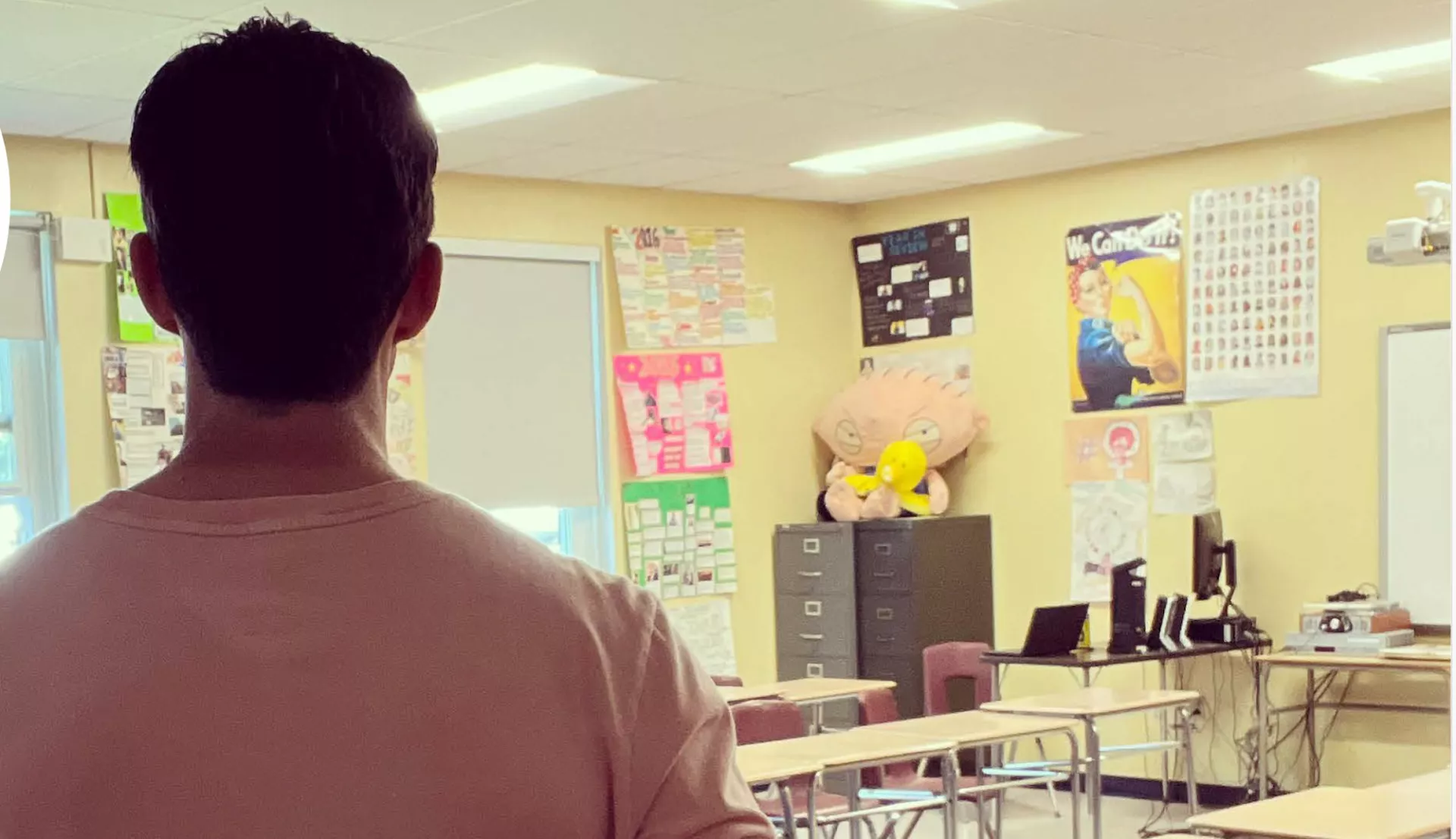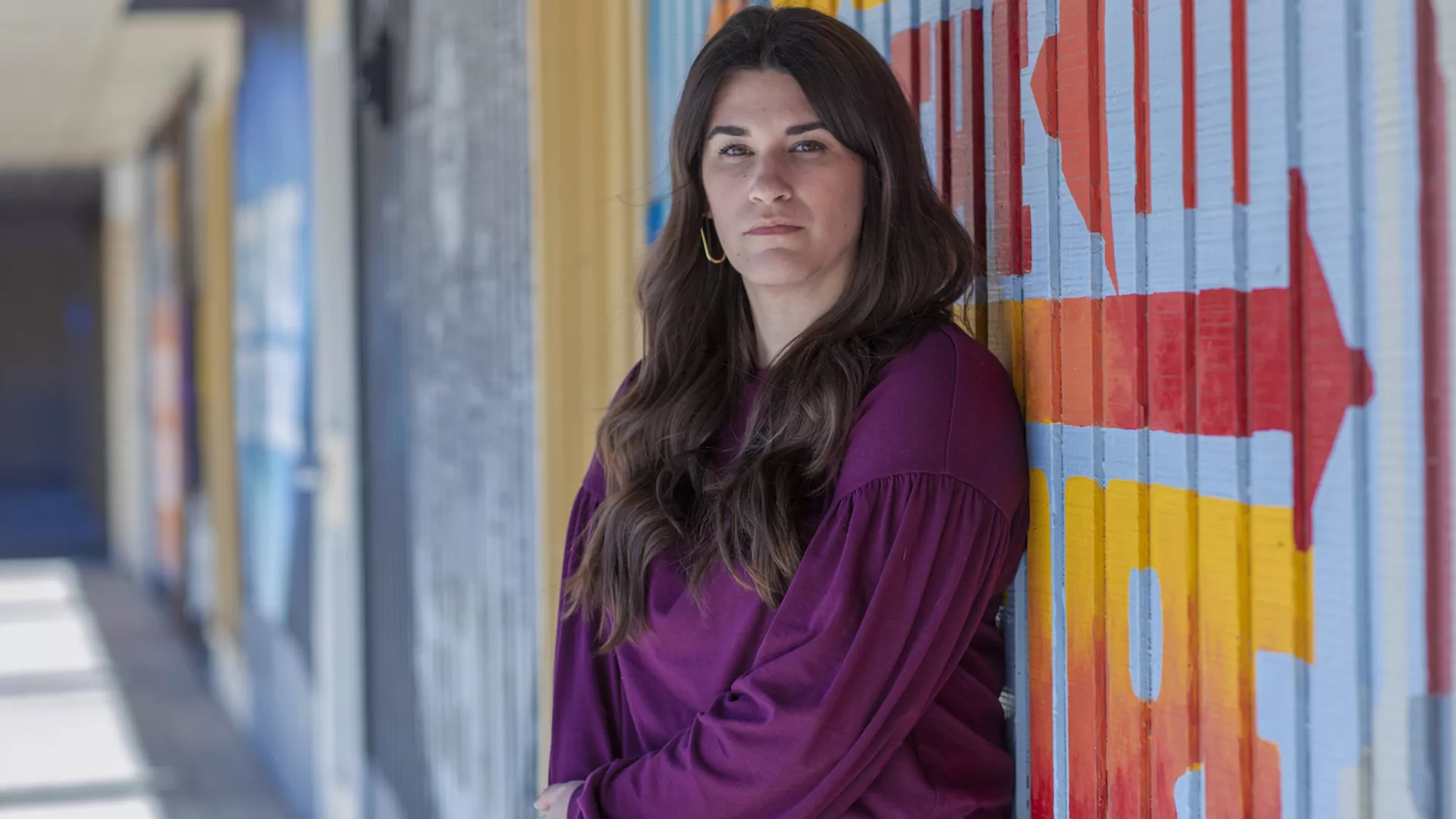After finishing my 21st year of teaching, in May, I seriously considered leaving the profession. It had been a stressful, overwhelming, and uncertain year, but this wasn’t the first, second, or even the 20th time I thought about a career change. I’m sure I’m not alone.
Ultimately, I decided to return because of my reality: I love teaching. I love being around my students. I love contributing to student success and happiness. But finding that love isn’t always easy.
In recent years, I have grown to hate everything that comes with being a teacher: the low pay, the lack of support and resources, and the organized attacks on educators and education.
I often see a quote on social media that embodies what many educators contemplate each school year: “If I stay in teaching, it’s because of the kids. If I leave teaching, it’s because of the adults.”
Why We Must Speak Up
I worry about the profession’s future and often think about how we can keep newer teachers—especially when they can make more money elsewhere while working fewer hours and with less stress.
This is where honesty comes into play. I tell incoming teachers that I must have considered quitting at least once a week during my first two years. I had no idea what I was getting myself into, and teaching was not even close to how it was portrayed in academic publications or in the educational videos we watched in college.
I think back to my first year. Like many educators, I went through different phases of emotion as the year went on: anticipation, survival, disillusionment, rejuvenation, and reflection. And these phases are still relevant to me, even all these years later.
I hit my stride as an educator in my fourth and fifth years, finding my strengths and weaknesses and utilizing strategies that worked best for my students. But that didn’t feel like enough. I was now living the life of the tired teacher who hated hearing people attack public schools with the same old comment: “You knew what you were getting into, so stop complaining.”
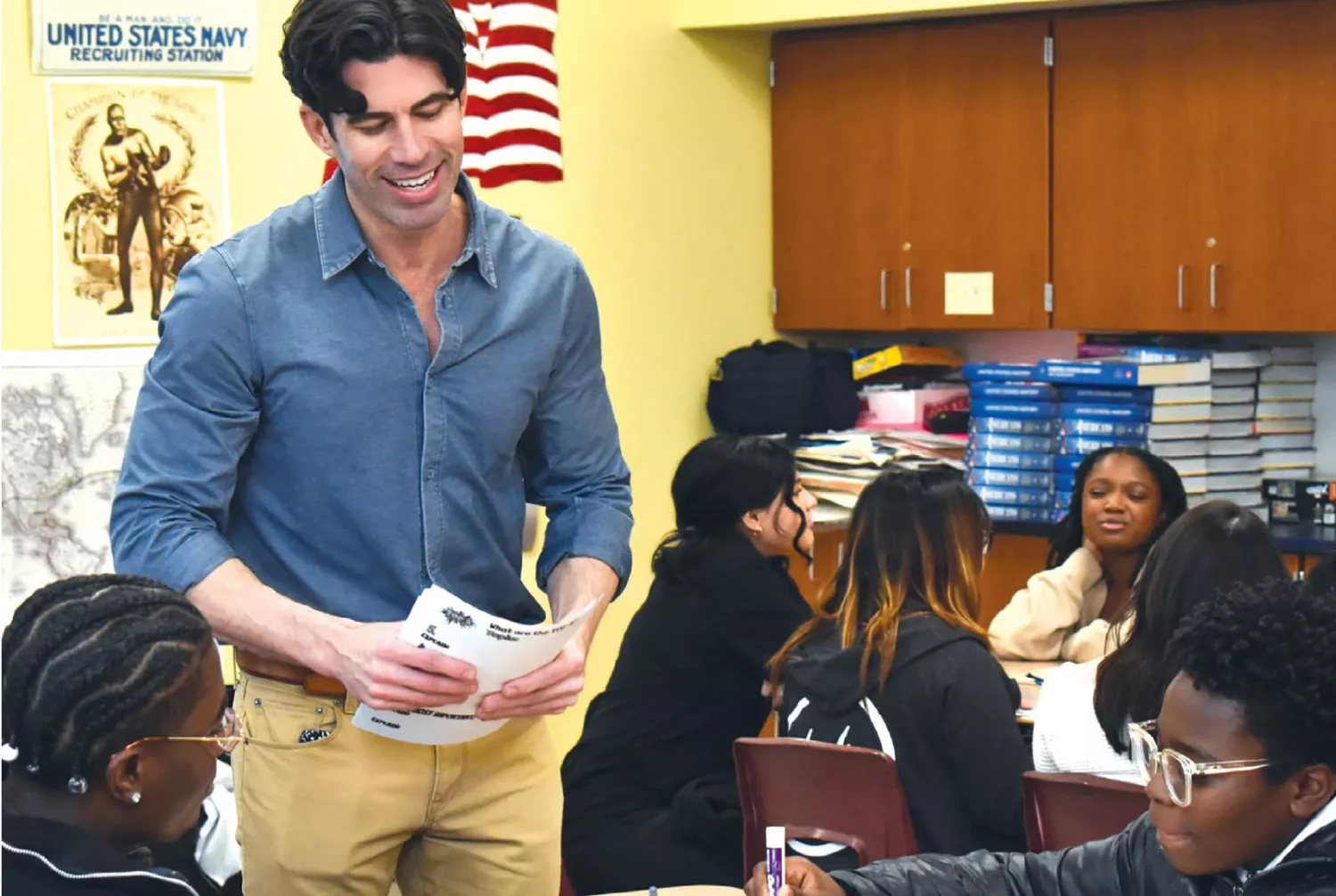
This is where I implore all of you to speak up. I never thought being a teacher meant I needed to have a voice outside of my classroom, but I was wrong.
We all need to be advocates. This is where we all must fight back against negative narratives. Tell people, “If you think talking about the obstacles we face while educating children is ‘complaining,’ I assume you have no real understanding of how much educators and schools do and what is expected of everyone who works in a school.”
I’ve learned so much over the years—most of all, that everyone wants all children to receive the best education and best school experience possible. That’s what I tell anyone who will listen.
As educators, we must use our voices to spread the right message about our schools and profession, because some politicians and pundits will try to tell a different story.
Speak up for those who may not be brave enough to attend a school board meeting. Tell those making the decisions what’s needed for your students. Answer the call of your union for testimony on relevant legislation. And share your stories with elected leaders.
This may not be the job we thought we signed up for, but this is the place we’re in now, and we must rise to the occasion. Staying in the profession means we need to communicate about our realities.
If I can tell parents and guardians one thing, it’s that they should trust the people spending most of the day with their child—the people who are educating, nurturing, and caring for their child—and not the people who are trying to lobby for themselves or for the “issue du jour.”
Rekindling Your Professional Happiness
Most teachers I know have an inspiring story of why they chose this profession. Like most educators, I chose to enter teaching because I was fortunate enough to have teachers who truly cared about and inspired me.
As I write from the classroom I’ve worked in for more than two decades, at the same school were I was a student, I realize I’ve spent 25 years—more than half my life—in the same building. The idea feels both inspiring and depressing, but mostly inspiring. The best part? My mom knows where to find me and even sends me care packages at school.
I mention my mother because I know that so many teachers work in the communities they’re from, and even teach in the schools they once attended. It’s important, when you think about leaving, to remember this is one of the best things about our profession: investing in the cities and towns that invested in us. It’s one of the biggest reasons I keep coming back year after year.
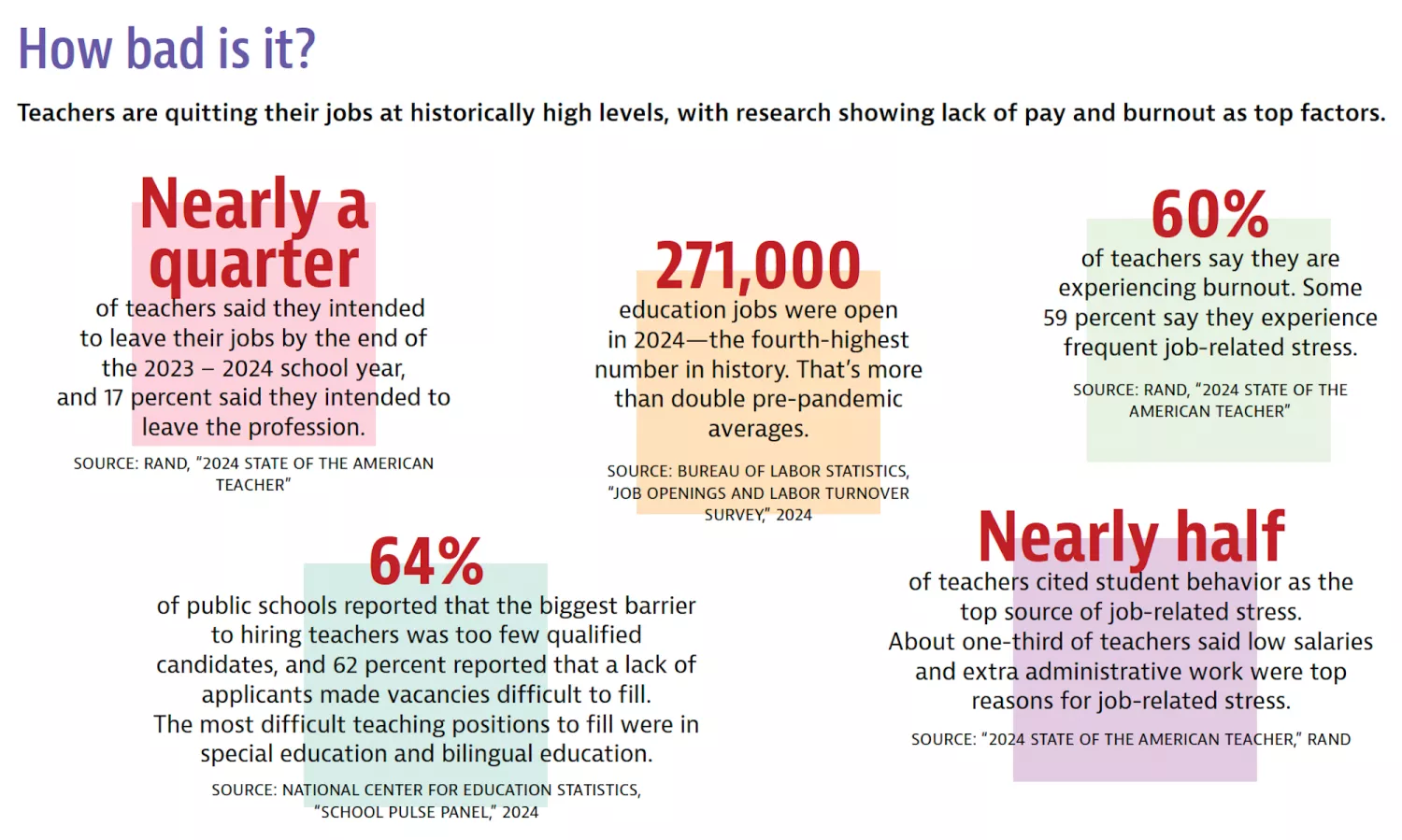
I truly want my community to have the best schools possible. In my hometown of Union, N.J., I was fortunate to have amazing educators throughout my life.
I am drawn back to the classroom each year when I think about my pre-K teacher, Mrs. Martino, who was able to reach and inspire every one of her young students.
Then, in high school, Mr. “Weez” and Mr. Caliguire— two of the most engaging, entertaining, and mildly insane teachers I ever had— nurtured my love of history, humanities, and learning from the past. Last but not least was my coach and mentor, Mr. Monaco, who trained me throughout high school for baseball and football. More important, he helped shape me into the man I would become.
I became a teacher because I was inspired by all my educators, but that is also the reason I have battled with the decision to leave. Giving so much takes a toll.
The Drive to Stay
The educators I meet are passionate, compassionate, intelligent, and selfless individuals who have dedicated their lives to the success and happiness of other people’s children.
Teachers and support staff give so much to their students, schools, and communities that there often isn’t much room left for themselves or their families.
As with most teachers, my day doesn’t end at 3 p.m.; if it did, I wouldn’t be an effective educator. Like most teachers, I find it is easier to buy or crowdfund the supplies I need than to wait for my district to provide them. And like most teachers, I work a second and even a third job because I can’t survive on my teaching salary.
Most people call teaching one of the most important careers someone can pursue, yet can we really call it a “career” if we have to work other jobs to continue in the profession?
Quote byNicholas Ferroni , high school history teacher
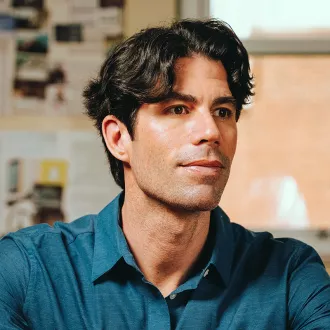
Personally, I’ve lost sleep over whether to stay in the classroom or pursue more lucrative opportunities. But I just can’t seem to get myself to leave.
I’ve dedicated so much of my life to advocating for, supporting, and trying to help teachers that I am not sure what effect it would have if someone like me—someone who loves teaching—throws in the towel. And I’m not even the best teacher in this country, in New Jersey, or even in my school.
I know I need to use my social media platform to help change the narrative, to make others see the value of the profession, and to help build the schools our students deserve.
So many educators stay in the profession for the students, but they may not be enough to retain teachers for the long haul. We, as a society, must drastically improve so many of the factors that are forcing educators to leave their dream jobs. And that starts with respecting the profession and paying school staff what they deserve.
Teaching is our calling, but it doesn’t have to be our vow of poverty. Remember that when you talk to anyone who thinks you have the summer off, and share your story about why you continue to come back, year after year. Our voices are our outlet to enact the change we need for our students.

